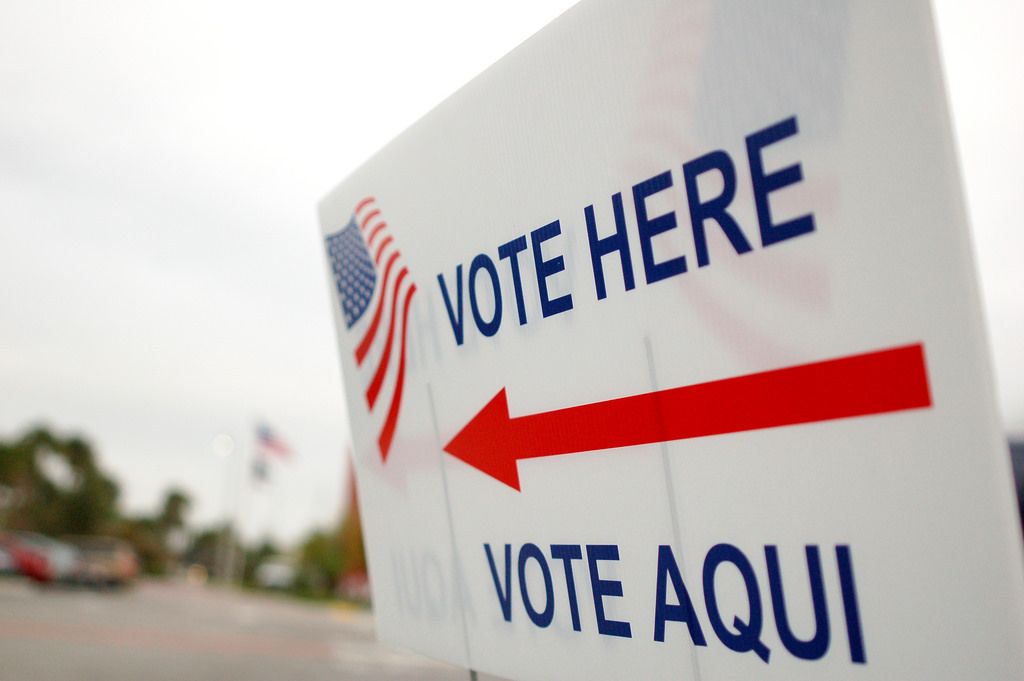Views expressed in opinion columns are the author’s own.
With the midterm elections around the corner, we’re closing in on the end of voter registration. Voter registration is in vogue, with celebrities encouraging people to register, pop stars urging people to the polls and activist groups competing with one another to get the most voters to sign up. However, registering to vote isn’t synonymous with actually voting, and there will almost certainly be fewer actual voters than there are registered.
Ultimately, not enough people are voting in elections. The United States claims to be a democracy. But the fact that in recent years only about 60 percent of the voting population votes in general elections and about 40 percent vote in midterms would suggest otherwise. The solution is simple — voting should be mandatory.
Currently, not voting is correlated with younger age groups, lower income households, lower levels of education and a history of not voting. Though these groups tend to stay home on election day for a variety of reasons, their voices end up being silenced in the arena of public policy.
When we look at the implications of which groups vote — such as higher rates of white voters as compared to the voting rates of minority groups — it becomes clear that the consequences of not voting can be harmful and severe. The lack of representation in government for certain communities can decide whether or not people are allowed safety, economic mobility and other basic rights.
If voting is required, government officials will be forced to accurately reflect their constituents’ wants. Cases of voter suppression would decrease — people’s votes would have to be accounted for. Minority communities and other underrepresented groups would finally have a greater presence in policy and political candidates.
Though many non-voters do not vote because of demographic reasons, there are people who actively choose not to vote because they feel as though their vote doesn’t matter, or they just do not like any of the possible candidates. In the case of the former, the reasoning is understandable, but ultimately fixable. In the great game of politics, it’s difficult for individuals to feel as though their representatives are truly listening, or that politicians actually care. However, if everyone was required to vote, it would be more likely to see more turnover in politicians who have overstayed their welcome, and thus encourage politicians to truly hear and act on their representatives’ wants and needs.
Though people often think that one vote can’t change anything, there is truth to the cliché of “strength in numbers.” If a great number of people feel a certain way and vote accordingly, there can be change, regardless of a place’s partisan past.
There’s also a solution for those who choose not to vote because they do not like the candidates. In our hypothetical compulsory voting world, people who feel strongly about not supporting the running candidates could send back an unfilled ballot or could check an “Other” box, at which point they could suggest someone they feel should run, whether that be a previously eliminated candidate, their grandmother or Michelle Obama. Essentially, compulsory voting would not require people vote for the candidates, just that people vote.
However, compulsory voting does present its challenges. There are groups who are not turning out because they can’t get to the polls, are homeless, do not have time off of work to vote or feel as though they don’t know the candidates. If we were to use a compulsory voting system, measures would have to be taken to address such issues.
We could follow the Australian model, where homeless and displaced people with no fixed address are not required to vote, and therefore would not suffer any financial penalty. The Australian system works to help people who may not have the time, money or the ability to go to polls, figure out how to vote or get to a voting station — a system we would be wise to adapt.
The issue of not knowing the candidates should also be addressed. Though people should make an effort to learn about candidates, many do not. Maybe brief summaries of platforms and political pasts could accompany the ballot, which would allow the obligated voter to feel more comfortable about voting and may prevent them from choosing blindly or simply along partisan lines.
Basically, our current system of voting has landed the country in the dystopian trash fire that is the present day, so it might be time to try something different. Compulsory voting would only help by allowing for a future in which people are accurately and adequately represented in the government.
Jasmine Baten is a junior English major. She can be reached at jasminebaten137@gmail.com



